- Home
- Jack London
The Little Lady of the Big House Page 20
The Little Lady of the Big House Read online
Page 20
«What can little Paula do?
Why, drive a phaeton and two.
Can little Paula do no more?
Yes, drive a tally-ho and four.»
All were in laughter as Paula nodded to the grooms to release the horses' heads, took the feel of the four mouths on her hands, and shortened and slipped the reins to adjustment of four horses into the collars and taut on the traces.
In the babel of parting gibes to Dick, none of the guests was aware of aught else than a bright morning, the promise of a happy day, and a genial host bidding them a merry going. But Paula, despite the keen exhilaration that should have arisen with the handling of four such horses, was oppressed by a vague sadness in which, somehow, Dick's being left behind figured. Through Graham's mind Dick's merry face had flashed a regret of conscience that, instead of being seated there beside this one woman, he should be on train and steamer fleeing to the other side of the world.
But the merriness died on Dick's face the moment he turned on his heel to enter the house. It was a few minutes later than ten when he finished his dictation and Mr. Blake rose to go. He hesitated, then said a trifle apologetically:
«You told me, Mr. Forrest, to remind you of the proofs of your
Shorthorn book. They wired their second hurry-up yesterday.»
«I won't be able to tackle it myself,» Dick replied. «Will you please correct the typographical, submit the proofs to Mr. Manson for correction of fact—tell him be sure to verify that pedigree of King of Devon—and ship them off.»
Until eleven Dick received his managers and foremen. But not for a quarter of an hour after that did he get rid of his show manager, Mr. Pitts, with the tentative make-up of the catalogue for the first annual stock-sale on the ranch. By that time Mr. Bonbright was on hand with his sheaf of telegrams, and the lunch-hour was at hand ere they were cleaned up.
For the first time alone since he had seen the tally-ho off, Dick stepped out on his sleeping porch to the row of barometers and thermometers on the wall. But he had come to consult, not them, but the girl's face that laughed from the round wooden frame beneath them.
«Paula, Paula,» he said aloud, «are you surprising yourself and me after all these years? Are you turning madcap at sober middle age?»
He put on leggings and spurs to be ready for riding after lunch, and what his thoughts had been while buckling on the gear he epitomized to the girl in the frame.
«Play the game,» he muttered. And then, after a pause, as he turned to go: «A free field and no favor … and no favor.»
* * * * *
«Really, if I don't go soon, I'll have to become a pensioner and join the philosophers of the madroГ±o grove,» Graham said laughingly to Dick.
It was the time of cocktail assembling, and Paula, in addition to Graham, was the only one of the driving party as yet to put in an appearance.
«If all the philosophers together would just make one book!» Dick demurred. «Good Lord, man, you've just got to complete your book here. I got you started and I've got to see you through with it.»
Paula's encouragement to Graham to stay on—mere stereotyped, uninterested phrases—was music to Dick. His heart leapt. After all, might he not be entirely mistaken? For two such mature, wise, middle– aged individuals as Paula and Graham any such foolishness was preposterous and unthinkable. They were not young things with their hearts on their sleeves.
«To the book!» he toasted. He turned to Paula. «A good cocktail,» he praised. «Paul, you excel yourself, and you fail to teach Oh Joy the art. His never quite touch yours.—Yes, another, please.»
CHAPTER XXI
Graham, riding solitary through the redwood canyons among the hills that overlooked the ranch center, was getting acquainted with Selim, the eleven-hundred-pound, coal-black gelding which Dick had furnished him in place of the lighter Altadena. As he rode along, learning the good nature, the roguishness and the dependableness of the animal, Graham hummed the words of the «Gypsy Trail» and allowed them to lead his thoughts. Quite carelessly, foolishly, thinking of bucolic lovers carving their initials on forest trees, he broke a spray of laurel and another of redwood. He had to stand in the stirrups to pluck a long– stemmed, five-fingered fern with which to bind the sprays into a cross. When the patteran was fashioned, he tossed it on the trail before him and noted that Selim passed over without treading upon it. Glancing back, Graham watched it to the next turn of the trail. A good omen, was his thought, that it had not been trampled.
More five-fingered ferns to be had for the reaching, more branches of redwood and laurel brushing his face as he rode, invited him to continue the manufacture of patterans, which he dropped as he fashioned them. An hour later, at the head of the canyon, where he knew the trail over the divide was difficult and stiff, he debated his course and turned back.
Selim warned him by nickering. Came an answering nicker from close at hand. The trail was wide and easy, and Graham put his mount into a fox trot, swung a wide bend, and overtook Paula on the Fawn.
«Hello!» he called. «Hello! Hello!»
She reined in till he was alongside.
«I was just turning back,» she said. «Why did you turn back? I thought you were going over the divide to Little Grizzly.»
«You knew I was ahead of you?» he asked, admiring the frank, boyish way of her eyes straight-gazing into his.
«Why shouldn't I? I had no doubt at the second patteran.»
«Oh, I'd forgotten about them,» he laughed guiltily. «Why did you turn back?»
She waited until the Fawn and Selim had stepped over a fallen alder across the trail, so that she could look into Graham's eyes when she answered:
«Because I did not care to follow your trail.—To follow anybody's trail,» she quickly amended. «I turned back at the second one.»
He failed of a ready answer, and an awkward silence was between them. Both were aware of this awkwardness, due to the known but unspoken things.
«Do you make a practice of dropping patterans?» Paula asked.
«The first I ever left,» he replied, with a shake of the head. «But there was such a generous supply of materials it seemed a pity, and, besides, the song was haunting me.»
«It was haunting me this morning when I woke up,» she said, this time her face straight ahead so that she might avoid a rope of wild grapevine that hung close to her side of the trail.
And Graham, gazing at her face in profile, at her crown of gold-brown hair, at her singing throat, felt the old ache at the heart, the hunger and the yearning. The nearness of her was a provocation. The sight of her, in her fawn-colored silk corduroy, tormented him with a rush of visions of that form of hers—swimming Mountain Lad, swan– diving through forty feet of air, moving down the long room in the dull-blue dress of medieval fashion with the maddening knee-lift of the clinging draperies.
«A penny for them,» she interrupted his visioning. His answer was prompt.
«Praise to the Lord for one thing: you haven't once mentioned Dick.»
«Do you so dislike him?»
«Be fair,» he commanded, almost sternly. «It is because I like him.
Otherwise…»
«What?» she queried.
Her voice was brave, although she looked straight before her at the
Fawn's pricking ears.
«I can't understand why I remain. I should have been gone long ago.»
«Why?» she asked, her gaze still on the pricking ears.
«Be fair, be fair,» he warned. «You and I scarcely need speech for understanding.»
She turned full upon him, her cheeks warming with color, and, without speech, looked at him. Her whip-hand rose quickly, half way, as if to press her breast, and half way paused irresolutely, then dropped down to her side. But her eyes, he saw, were glad and startled. There was no mistake. The startle lay in them, and also the gladness. And he, knowing as it is given some men to know, changed the bridle rein to his other hand, reined close to her, put his arm around her, dr
ew her till the horses rocked, and, knee to knee and lips on lips, kissed his desire to hers. There was no mistake—pressure to pressure, warmth to warmth, and with an elate thrill he felt her breathe against him.
The next moment she had torn herself loose. The blood had left her face. Her eyes were blazing. Her riding-whip rose as if to strike him, then fell on the startled Fawn. Simultaneously she drove in both spurs with such suddenness and force as to fetch a groan and a leap from the mare.
He listened to the soft thuds of hoofs die away along the forest path, himself dizzy in the saddle from the pounding of his blood. When the last hoof-beat had ceased, he half-slipped, half-sank from his saddle to the ground, and sat on a mossy boulder. He was hard hit—harder than he had deemed possible until that one great moment when he had held her in his arms. Well, the die was cast.
He straightened up so abruptly as to alarm Selim, who sprang back the length of his bridle rein and snorted.
What had just occurred had been unpremeditated. It was one of those inevitable things. It had to happen. He had not planned it, although he knew, now, that had he not procrastinated his going, had he not drifted, he could have foreseen it. And now, going could not mend matters. The madness of it, the hell of it and the joy of it, was that no longer was there any doubt. Speech beyond speech, his lips still tingling with the memory of hers, she had told him. He dwelt over that kiss returned, his senses swimming deliciously in the sea of remembrance.
He laid his hand caressingly on the knee that had touched hers, and was grateful with the humility of the true lover. Wonderful it was that so wonderful a woman should love him. This was no girl. This was a woman, knowing her own will and wisdom. And she had breathed quickly in his arms, and her lips had been live to his. He had evoked what he had given, and he had not dreamed, after the years, that he had had so much to give.
He stood up, made as if to mount Selim, who nozzled his shoulder, then paused to debate.
It was no longer a question of going. That was definitely settled. Dick had certain rights, true. But Paula had her rights, and did he have the right to go, after what had happened, unless … unless she went with him? To go now was to kiss and ride away. Surely, since the world of sex decreed that often the same men should love the one woman, and therefore that perfidy should immediately enter into such a triangle—surely, it was the lesser evil to be perfidious to the man than to the woman.
It was a real world, he pondered as he rode slowly along; and Paula, and Dick, and he were real persons in it, were themselves conscious realists who looked the facts of life squarely in the face. This was no affair of priest and code, of other wisdoms and decisions. Of themselves must it be settled. Some one would be hurt. But life was hurt. Success in living was the minimizing of pain. Dick believed that himself, thanks be. The three of them believed it. And it was nothing new under the sun. The countless triangles of the countless generations had all been somehow solved. This, then, would be solved. All human affairs reached some solution.
He shook sober thought from his brain and returned to the bliss of memory, reaching his hand to another caress of his knee, his lips breathing again to the breathing of hers against them. He even reined Selim to a halt in order to gaze at the hollow resting place of his bent arm which she had filled.
Not until dinner did Graham see Paula again, and he found her the very usual Paula. Not even his eye, keen with knowledge, could detect any sign of the day's great happening, nor of the anger that had whitened her face and blazed in her eyes when she half-lifted her whip to strike him. In everything she was the same Little Lady of the Big House. Even when it chanced that her eyes met his, they were serene, untroubled, with no hint of any secret in them. What made the situation easier was the presence of several new guests, women, friends of Dick and her, come for a couple of days.
Next morning, in the music room, he encountered them and Paula at the piano.
«Don't you sing, Mr. Graham?» a Miss Hoffman asked.
She was the editor of a woman's magazine published in San Francisco,
Graham had learned.
«Oh, adorably,» he assured her. «Don't I, Mrs. Forrest?» he appealed.
«It is quite true,» Paula smiled, «if for no other reason that he is kind enough not to drown me quite.»
«And nothing remains but to prove our words,» he volunteered. «There's a duet we sang the other evening—» He glanced at Paula for a sign. «—Which is particularly good for my kind of singing.» Again he gave her a passing glance and received no cue to her will or wish. «The music is in the living room. I'll go and get it.»
«It's the 'Gypsy Trail,' a bright, catchy thing,» he heard her saying to the others as he passed out.
They did not sing it so recklessly as on that first occasion, and much of the thrill and some of the fire they kept out of their voices; but they sang it more richly, more as the composer had intended it and with less of their own particular interpretation. But Graham was thinking as he sang, and he knew, too, that Paula was thinking, that in their hearts another duet was pulsing all unguessed by the several women who applauded the song's close.
«You never sang it better, I'll wager,» he told Paula.
For he had heard a new note in her voice. It had been fuller, rounder, with a generousness of volume that had vindicated that singing throat.
«And now, because I know you don't know, I'll tell you what a patteran is,» she was saying…
CHAPTER XXII
«Dick, boy, your position is distinctly Carlylean,» Terrence McFane said in fatherly tones.
The sages of the madrono grove were at table, and, with Paula, Dick and Graham, made up the dinner party of seven.
«Mere naming of one's position does not settle it, Terrence,» Dick replied. «I know my point is Carlylean, but that does not invalidate it. Hero-worship is a very good thing. I am talking, not as a mere scholastic, but as a practical breeder with whom the application of Mendelian methods is an every-day commonplace.»
«And I am to conclude,» Hancock broke in, «that a Hottentot is as good as a white man?»
«Now the South speaks, Aaron,» Dick retorted with a smile. «Prejudice, not of birth, but of early environment, is too strong for all your philosophy to shake. It is as bad as Herbert Spencer's handicap of the early influence of the Manchester School.»
«And Spencer is on a par with the Hottentot?» Dar Hyal challenged.
Dick shook his head.
«Let me say this, Hyal. I think I can make it clear. The average Hottentot, or the average Melanesian, is pretty close to being on a par with the average white man. The difference lies in that there are proportionately so many more Hottentots and negroes who are merely average, while there is such a heavy percentage of white men who are not average, who are above average. These are what I called the pace– makers that bring up the speed of their own race average-men. Note that they do not change the nature or develop the intelligence of the average-men. But they give them better equipment, better facilities, enable them to travel a faster collective pace.
«Give an Indian a modern rifle in place of his bow and arrows and he will become a vastly more efficient game-getter. The Indian hunter himself has not changed in the slightest. But his entire Indian race sported so few of the above-average men, that all of them, in ten thousand generations, were unable to equip him with a rifle.»
«Go on, Dick, develop the idea,» Terrence encouraged. «I begin to glimpse your drive, and you'll soon have Aaron on the run with his race prejudices and silly vanities of superiority.»
«These above-average men,» Dick continued, «these pace-makers, are the inventors, the discoverers, the constructionists, the sporting dominants. A race that sports few such dominants is classified as a lower race, as an inferior race. It still hunts with bows and arrows. It is not equipped. Now the average white man, per se, is just as bestial, just as stupid, just as inelastic, just as stagnative, just as retrogressive, as the average savage. But the average white man h
as a faster pace. The large number of sporting dominants in his society give him the equipment, the organization, and impose the law.
«What great man, what hero—and by that I mean what sporting dominant—
has the Hottentot race produced? The Hawaiian race produced only one—
Kamehameha. The negro race in America, at the outside only two, Booker
T. Washington and Du Bois—and both with white blood in them…»
Paula feigned a cheerful interest while the exposition went on. She did not appear bored, but to Graham's sympathetic eyes she seemed inwardly to droop. And in an interval of tilt between Terrence and Hancock, she said in a low voice to Graham:
«Words, words, words, so much and so many of them! I suppose Dick is right—he so nearly always is; but I confess to my old weakness of inability to apply all these floods of words to life—to my life, I mean, to my living, to what I should do, to what I must do.» Her eyes were unfalteringly fixed on his while she spoke, leaving no doubt in his mind to what she referred. «I don't know what bearing sporting dominants and race-paces have on my life. They show me no right or wrong or way for my particular feet. And now that they've started they are liable to talk the rest of the evening…
«Oh, I do understand what they say,» she hastily assured him; «but it doesn't mean anything to me. Words, words, words—and I want to know what to do, what to do with myself, what to do with you, what to do with Dick.»
But the devil of speech was in Dick Forrest's tongue, and before Graham could murmur a reply to Paula, Dick was challenging him for data on the subject from the South American tribes among which he had traveled. To look at Dick's face it would have been unguessed that he was aught but a carefree, happy arguer. Nor did Graham, nor did Paula, Dick's dozen years' wife, dream that his casual careless glances were missing no movement of a hand, no change of position on a chair, no shade of expression on their faces.

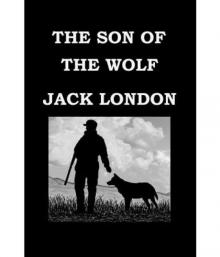 The Son of the Wolf
The Son of the Wolf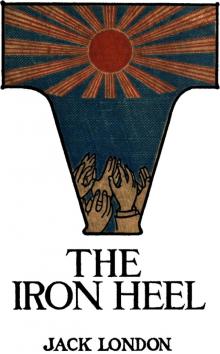 The Iron Heel
The Iron Heel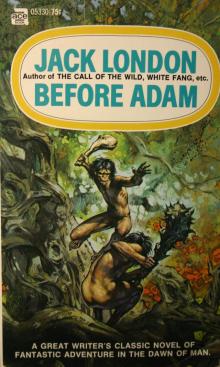 Before Adam
Before Adam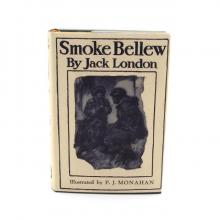 Smoke Bellew
Smoke Bellew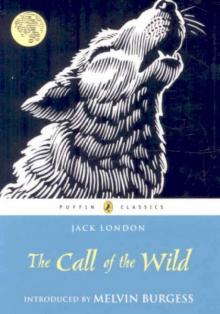 The Call of the Wild
The Call of the Wild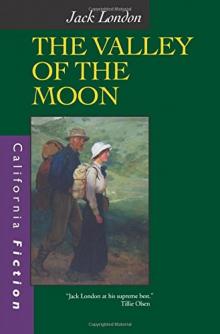 The Valley of the Moon Jack London
The Valley of the Moon Jack London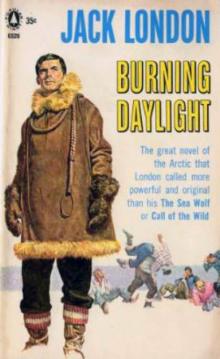 Burning Daylight
Burning Daylight The Sea Wolf
The Sea Wolf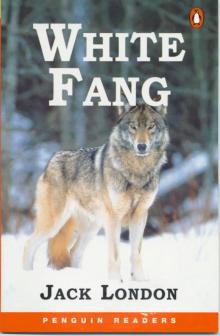 White Fang
White Fang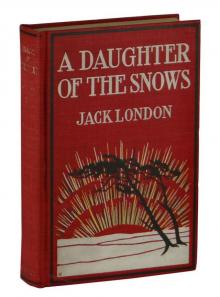 A Daughter of the Snows
A Daughter of the Snows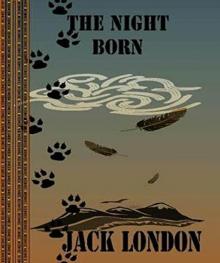 The Night-Born
The Night-Born A Son Of The Sun
A Son Of The Sun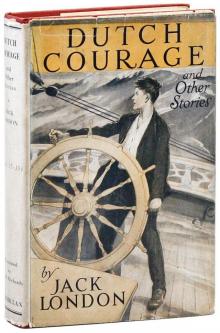 Dutch Courage and Other Stories
Dutch Courage and Other Stories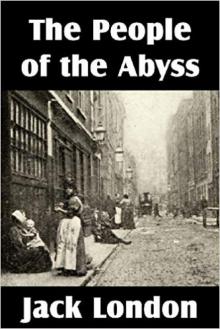 The People of the Abyss
The People of the Abyss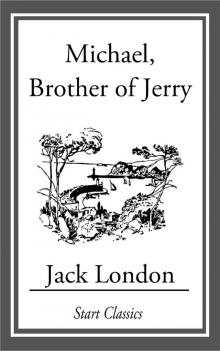 Michael, Brother of Jerry
Michael, Brother of Jerry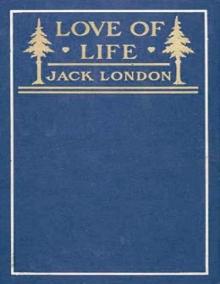 Love of Life, and Other Stories
Love of Life, and Other Stories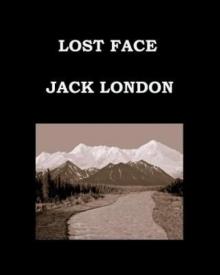 Lost Face
Lost Face The Road
The Road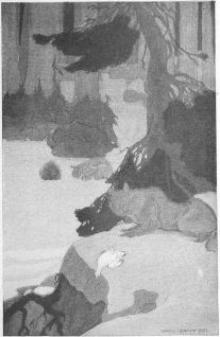 Love of Life
Love of Life The Turtles of Tasman
The Turtles of Tasman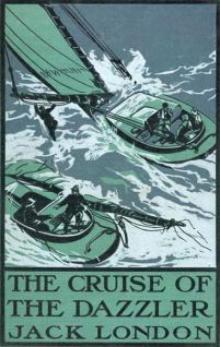 The Cruise of The Dazzler
The Cruise of The Dazzler The Heathen
The Heathen The Scab
The Scab The Faith of Men
The Faith of Men Adventure
Adventure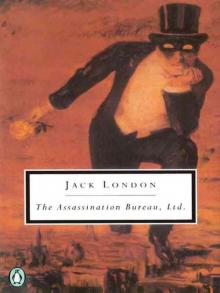 The Assassination Bureau, Ltd.
The Assassination Bureau, Ltd.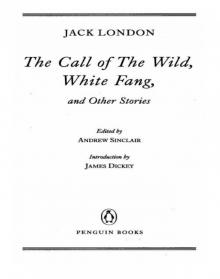 The Call of the Wild, White Fang, and Other Stories
The Call of the Wild, White Fang, and Other Stories The Call of the Wild and Selected Stories
The Call of the Wild and Selected Stories Jerry of the Islands
Jerry of the Islands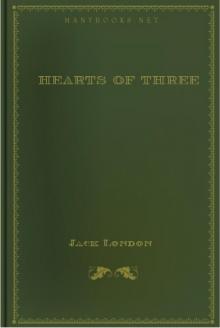 Hearts of Three
Hearts of Three The House of Pride
The House of Pride Moon-Face and Other Stories
Moon-Face and Other Stories Children of the Frost
Children of the Frost South Sea Tales
South Sea Tales The Strength of the Strong
The Strength of the Strong The Jacket (The Star-Rover)
The Jacket (The Star-Rover) The Little Lady of the Big House
The Little Lady of the Big House John Barleycorn
John Barleycorn ADaugter of Snows
ADaugter of Snows The Mutiny of the Elsinore
The Mutiny of the Elsinore Northland Stories
Northland Stories Tales of the Fish Patrol
Tales of the Fish Patrol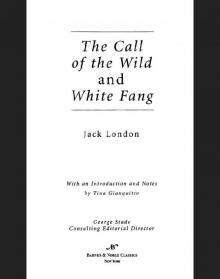 Call of the Wild and White Fang (Barnes & Noble Classics Series)
Call of the Wild and White Fang (Barnes & Noble Classics Series) The Valley of the Moon
The Valley of the Moon The Cruise of the Snark
The Cruise of the Snark The Game
The Game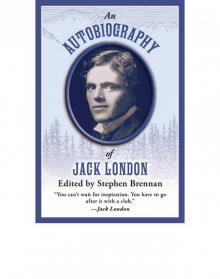 An Autobiography of Jack London
An Autobiography of Jack London